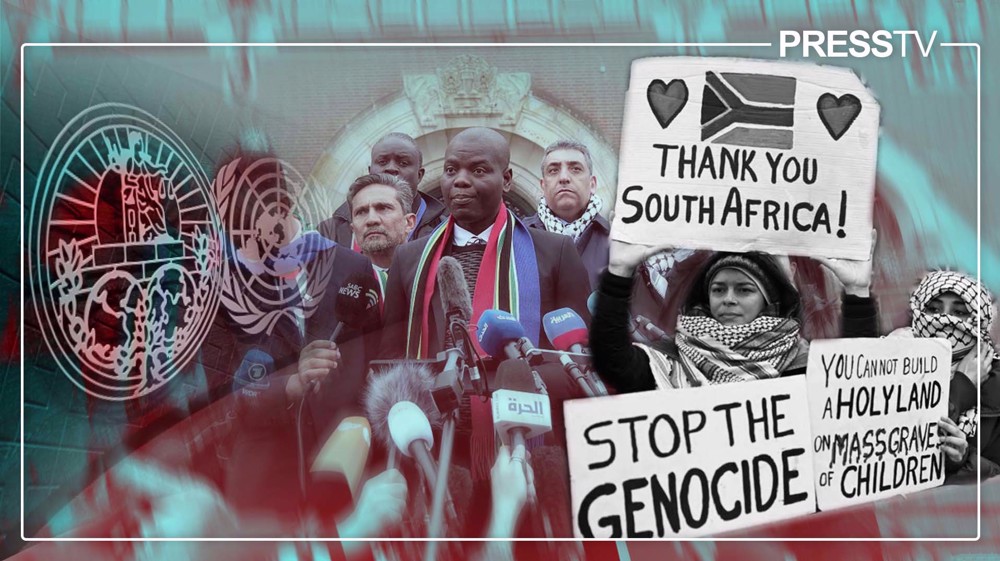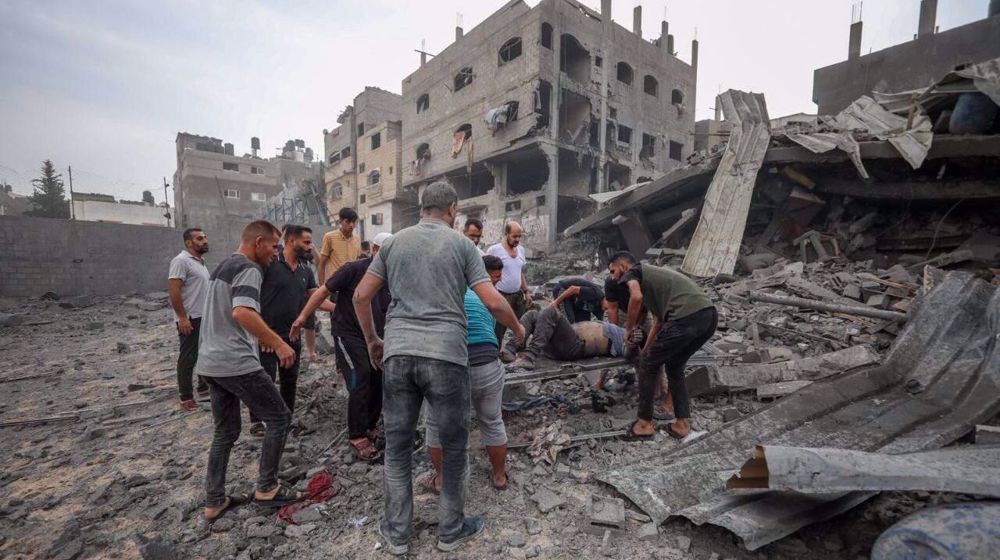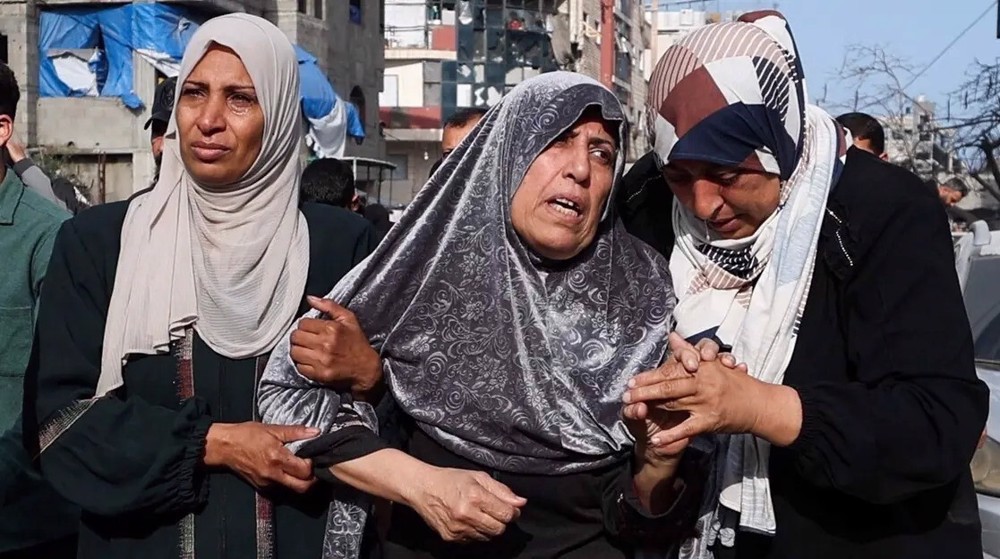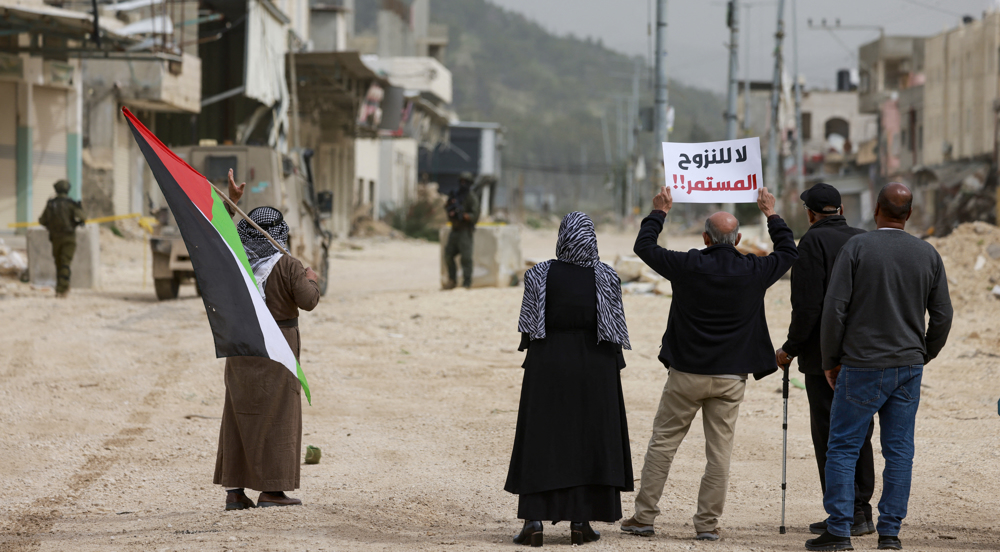Ahead of interim ruling, which countries back ICJ genocide case against Israel?
By Reza Javadi
The International Court of Justice (ICJ) is expected to announce its interim ruling on Friday in the case filed by South Africa against the Israeli regime over ongoing genocide in the Gaza Strip.
Ahead of the ruling, South African Foreign Minister Naledi Pandor, who has traveled to The Hague to attend the ICJ session, exuded confidence that her country will stand vindicated.
The main verdict in the case, according to legal experts, will take years but the interim ruling by the United Nations’ highest court is expected on Friday, which has been deemed significant and historic.
South Africa initiated legal proceedings against the Israeli regime at the ICJ in late December, with many countries across the world backing the move amid the genocidal war on the besieged Gaza Strip.
Asserting its stance against the Israeli genocide of Palestinians, South Africa, a State Party to the Genocide Convention, emphasized its treaty obligation to prevent such atrocities.
"As a State Party to the Convention on the Prevention and Punishment of the Crime of Genocide, South Africa is under a treaty obligation to prevent genocide from occurring," the South Africa Department of International Relations and Cooperation said in a statement at the time.
In a detailed 84-page filing, South Africa accused the Israeli regime of violating the 1948 Genocide Convention, which led to a two-day public hearing at The Hague in mid-January.
Both the Israeli regime and South Africa are signatories to the United Nations Genocide Convention, which gives the highest UN legal body jurisdiction to rule on disputes over the treaty.
Many countries have in recent weeks backed South Africa’s case against the regime that has in its fresh aggression against Palestinians in Gaza already killed more than 25,700 people, mostly children.
Iran has endorsed ICJ case against Israel
Iran, which is unarguably the biggest supporter of the Palestinian cause and has backed the people and resistance in Palestine for decades, is one of the countries that has endorsed South Africa’s case.
In a phone call with his South African counterpart Cyril Ramaphosa on Friday, President Ebrahim Raeisi again lauded the African country’s move and said it will register Ramaphosa’s name alongside that of the iconic anti-apartheid leader Nelson Mandela in the pages of history.
In a meeting with South Africa's new ambassador to Tehran Francis Molloy last week, President Raeisistrongly backed the case filed against the Israeli regime at the ICJ.
"South Africa's action against the crimes of the Zionist regime is a historic, lasting and commendable action and the Islamic Republic of Iran supports this smart and wise action," he stressed.
Earlier this month, Iran’s ministry said Tehran supports South Africa’s “responsible, courageous and honorable” action against the Tel Aviv regime at the ICJ over its "crimes in Gaza and the West Bank.”
It called on the international community to take “decisive action to bring the perpetrators of the crimes in Gaza to accountability” and extended its support “for resistance as a liberation move and legitimate right recognized by international law for the Palestinian nation in the struggle against the occupation.”
OIC, Muslim states back ICJ case against Israel
The Organization of Islamic Countries (OIC), comprising 57 nations, including Iran, Saudi Arabia, Pakistan and Morocco, also echoed its strong support for the case against Israel on December 30.
“The OIC has affirmed that the indiscriminate targeting by Israel, the occupying power, of the civilian population and the thousands of Palestinians, mostly women and children, killed, injured, forcibly displaced, and denied basic necessities and humanitarian assistance and the destruction of houses, health, educational and religious institutions, in their totality constitute mass genocide,” it said.
The leading body representing Islamic nations urged the ICJ to swiftly intervene and halt the mass genocide perpetrated by the Israeli regime forces in the besieged Gaza Strip.
Malaysia, which is also a signatory to the Genocide Convention, joined the lawsuit against the Israeli regime, welcoming the South African application.
"The legal action against Israel before ICJ is a timely and tangible step towards legal accountability for Israel's atrocities in Gaza and the Occupied Palestinian Territory (OPT) at large", the Malaysian Ministry of Foreign Affairs announced in a statement recently.
The Malaysian government reiterated a call for an independent Palestinian state “based on the pre-1967 borders, with East Jerusalem as its capital”.
Turkey, too, voiced its support for South Africa's initiative earlier this month, denouncing Israel's actions against Palestinians in Gaza as crimes against humanity and genocide.
“Turkey fully supports South Africa’s initiative to bring Israel before the ICJ for its crimes against humanity and genocide against the Palestinian people,” Turkish foreign minister Mevlut Cavusoglu said.
Jordan also declared its backing for South Africa's case at the ICJ, with Jordanian foreign minister Ayman Safadi saying they are gathering the necessary legal documentation to follow up on the case.
Speaking in parliament, Al-Safadi condemned Israel's obstruction of humanitarian aid entry into Gaza, terming it an implementation of a starvation policy against Palestinians.
“There are 43 Arab and Islamic countries that are members of the 1948 Convention on the Prevention and Punishment of Genocide, and one of the decisions of the joint Arab-Islamic summit was to assign the general secretariats of the Arab League and the Organisation of Islamic Cooperation to prepare legal files, and we are now working on formulating a joint effort to follow up on this file,” he noted.
South Africa’s case galvanizes anti-Israel front
Bolivia became another nation to endorse South Africa’s application at the ICJ, making it the first Latin American country to support the genocide case against Israel.
Bolivia’s foreign ministry affirmed its commitment to peace and justice as a signatory to the UN Genocide Convention.
During a UN General Assembly session in January, the Maldives, Namibia, and Pakistan also voiced their support for South Africa's genocide case.
The Arab League, comprising 22 member states, expressed solidarity, with Secretary-General Ahmed Aboul-Gheit commending South Africa for “prioritizing human values above all considerations.”
Colombia and Brazil also joined them in January, with a statement from Brazil’s foreign ministry highlighting President Lula Da Silva's endorsement of the South African initiative at the ICJ.
The statement emphasized the call for Israel to cease actions constituting genocide and described them as “flagrant violations of international humanitarian law.”
Beyond nations, advocacy groups worldwide, such as TerreiroPindorama in Brazil, Association Nacional de Amistad Italia-Cuba in Italy, and Collectif Judeo Arabe et Citoyen pour la Palestine in France, have also aligned with South Africa's call for justice.
Many countries file separate cases against Israel
Some countries have lodged separate cases against the Israeli regime at the ICJ, with Indonesia and Slovenia expressing their support for proceedings related to violations of Palestinian rights.
Both nations are set to join the effort seeking an advisory opinion on Israel's control and policies in Gaza, where the Israeli regime’s aerial and ground aggression, aided by the United States and other Western allies, since October 7 has created the modern world’s worst humanitarian crisis.
Ljubljana cited Israel's actions in Gaza and escalated violence in the occupied West Bank as grounds for its participation, with Slovenian Foreign Minister Tanja Fajon addressing the broader context of violations persisting for decades, “whose horrific consequences are still visible today”.
“In the light of recent events in Gaza and the West Bank, Slovenia, as one of the few EU countries, has decided to actively participate and present its views in these proceedings before the International Court of Justice, which has been asked to give an advisory opinion,” Fajon stated.
The separate ICJ hearing involving Slovenia and Indonesia is scheduled to commence on February 19.
Indonesia's Foreign Minister Retno Marsudi emphasized the importance of respecting the Palestinian people's right to self-determination, highlighting the enduring occupation by the apartheid regime.
"The right of the Palestinian people to self-determination must be respected. Israel's occupation of Palestine, which has lasted for more than 70 years, will not erase the right of the Palestinian people to independence," Marsudi was quoted as saying by the Indonesian foreign ministry.
Indonesia said it supported South Africa's case against Israel, though it is not a signatory of the 1948 Genocide Convention.
Countries that back Israel at ICJ
A handful of countries have expressed support for the occupying entity. The United States, opposing the genocide case, labeled South Africa’s submission as “meritless, counterproductive, and completely without any basis.”
The regime’s Western allies, including the European Union, have generally remained silent on the ICJ case. The United Kingdom, not endorsing the case, faces criticism for double standards in light of its submission to the ICJ supporting claims of genocide against the Rohingya community by Myanmar.
Germany has publicly opposed South Africa's case and intends to intervene on Israel's behalf as a third party.
The German federal government firmly rejects the genocide case filed against Israel, with spokesman Steffen Hebestreit stating: “It has no basis whatsoever. We will therefore speak as a third party in the main hearing before the International Court of Justice.”
Apart from Germany, Guatemala and Canada have declared their support for the Israeli regime.
#IR47: How Iran’s martyred commanders found faith, purpose and mission in Islamic Revolution
#IR47: Long walk to freedom - Imam Khomeini and the Iranian nation’s epoch-making moment
VIDEO | Tehran conference examines Islamic Revolution’s enduring role in shaping global resistance
VIDEO | Gazans say Israel seeks permanent military presence
VIDEO | UK PM faces call to quit over his US ambassador’s links to Epstein
VIDEO | Press TV's news headlines
Iran renews warning about Israeli intentions amid diplomatic engagement with US
Our missiles have put Zionist regime in its place: Iran’s top security official










 This makes it easy to access the Press TV website
This makes it easy to access the Press TV website